Regular Speakers
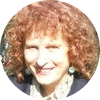
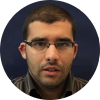
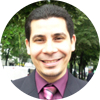
Ana Cavalli, Khalifa Toumi & Wissam Mallouli (TELECOM SudParis)
Talk - Active and Passive Testing in an Industrial Setting
Testing techniques are used to check if a given system implementation satisfies its specification or some predefined properties. These testing techniques can be active, based on the execution of specific test sequences against the implementation under test, or passive, based on the observation of the exchange of messages (input and output events) of the implementation under test during run-time. In this lecture, we will present the application of the combination of active and passive testing to test the secure interoperability of different organizations. We will also present the active test generation based on security objectives combined with the application of passive testing techniques to the detection of anomalies and attacks. The application of these techniques will be illustrate by the security testing of two industrial case studies.

Ana Cavalli has obtained her Doctorat d’Etat es Mathematics Science and Informatics, from the University of Paris VII, in 1984. In 1981, she integrated the LITP ((Laboratoire d’Informatique Théorique et Programmation), C.N.R.S., Paris, where she worked on proof methods for temporal logics and their application to communication protocols. From 1985 to 1990, she was a researcher in the department Languages and Switch Systems, at CNET (Centre National d’Etudes des Telecommunications), where she worked on software engineering and formal methods. She is Full Professor at TELECOM & Management SudParis (ex Institut National des Telecommunications) since 1990. She is the director of the Software for Networks department. She is also responsible of the research team “Verification and test of services and protocols” and the AVERSE team, in the CNRS research laboratory SAMOVAR. She is member of the Steering Committee of the IFIP TESTCOM conference and also member of the Program Committee of numerous international conferences: IFIP FORTE, IEEE ICNP, IEEE ICST, IFIP CFIP, SARSII, AMOST-T, SETOP, IEEE ICST, QESS. She has been co-chair of TESTCOM’95, SDL’97, PSTV/FORTE’98, ICNP’2002 et CFIP’2003. She will be domain chair of ICNP 2009, and co-chair of the IEEE ICST 2010 and SETOP 2010 conferences. Her research interests are on specification and verification, testing methodologies for conformance and interoperability testing, active testing and monitoring techniques, the validation of security properties and their application to services and protocols. She is the leader of the European Marie Curie network TAROT (Training and Research on Testing) and participates to several national and international projects: ASK IT, NetLab, POLITESS, WebMov, SHIELDS, CARRIOCAS, Robust Testing.
Khalifa Toumi is a computer engineer graduate from the national School of Computer Science (ENSI)-Tunisia in 2009. He received his Masters degree from the same school in 2010 and his PhD in computer science from Telecom and Management SudParis (France) in 2014. He worked in SAGEMCOM company as a software engineer during one year. Currently, he is a post-doc in the CNRS SAMOVAR lab in Telecom SudParis. His topics of interest cover security testing and monitoring, trust management and security policies specification for distributed systems. He worked in several European and French research projects.
Wissam Mallouli is currently a research & development engineer at Montimage France. He received his Masters degree from the "Evry Val d'Essonne" University in 2005 and his PhD in computer science from Telecom and Management SudParis (France) in 2008. His topics of interest cover formal testing and monitoring of functional behaviours and security aspects of distributed systems and networks. He worked in several European and French research projects (Inter-trust, Diamonds, SAN, PIMI, etc.). He also participates in the program/organizing committees of numerous national and international conferences. He published more than 25 papers in conference proceedings, books and journals.
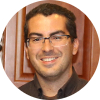
Francisco Chicano (Universidad de Málaga)
Talk - Recent Research on Search Based Software Testing
Software Testing is an important and time-consuming task in the Software Development Lifecycle whose goal is to detect faults in the software product or certify that it fulfills the specification with a high confidence. Industry, and also Academia, are interested in automatic tools that assist software testers in their task, saving time and resources at the same time that the quality of the product increases. Many of the problems that arise in Software Testing can be formulated as optimization problems that can be solved using search techniques. This domain of research is called Search Based Software Testing (SBST). In this talk the speaker will present some recent advances in this domain. In particular, he will focus on their recent research in the test suite minimization problem, the prioritized pairwise test case generation, the testing of software product lines and a novel proposal to measure the cost of testing a program.


Francisco Chicano is a PhD assistant professor in the NEO-GISUM Group in the Department of Languages and Computing Sciences of the University of Malaga (Spain) and Faculty Affiliate of the Computer Science Department of the Colorado State University (USA). He studied Computer Science (2003) and PhD in Computer Science (2007) at University of Malaga, and Physics (2014) in the National Distance Education University. His research interests include the application of randomized search techniques to Software Engineering problems. In particular, he contributed to the domains of software testing, model checking and software project scheduling. He has served as Track Chair in the SBSE track of GECCO 2013 and as Guest Editor in a Special Issue on SBSE in the Journal of Systems and Software. He is the author of more than 70 refereed publications, has 3 best paper awards and has served on more than 30 program committees.
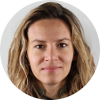
Alessandra Gorla (IMDEA)
Talk - Challenges and Opportunities in Mobile Testing

Alessandra Gorla received her Bachelor's and Master's degrees in computer science from the University of Milano-Bicocca in Italy. She completed her Ph.D. in informatics at the Università della Svizzera Italiana in Lugano, Switzerland in 2011. In her Ph.D. thesis she defined and developed the notion of Automatic Workarounds, a self-healing technique to recover Web applications from field failures, a work for which she received the Fritz Kutter Award for the best industry related Ph.D. thesis in computer science in Switzerland. Before joining IMDEA Software Institute in December 2014, she has been a postdoctoral researcher in the software engineering group at Saarland University in Germany. During her postdoc, she has also been a visiting researcher at Google in Mountain View.
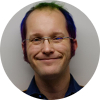
Alex Henderson (Google)
Talk - Build, Test, Release - Solving Google-scale Problems
Every development house has to figure out how to set up their development environment, and everyone's setup is different. This talk will describe some of the decisions that Google made and the consequent machinery they have developed for their own use.
Alex joined Google in 2009, and currently works as a Software Engineer on automation and infrastructure within the AdSense frontend engineering team.
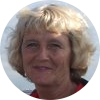
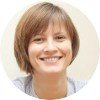
Nina Yevtushenko & Natalia Kushik (Tomsk State University)
Talk - Testing in Context: Framework and FSM Based Test Derivation

Nina Yevtushenko received her Ph.D. degree in Computer Science from Saratov State University in 1983. She received "Doctor of Technical Sciences" degree and a professorship title from the Supreme Attestation Committee in Moscow. Up to 1991 she worked as a researcher with the Siberian Scientific Institute of Physics and Technology. From 1991 she has joined Tomsk State University as a professor and presently she is a leader of a research team working on the synthesis and analysis of discrete event systems. She stayed as a visiting researcher/professor in Moscow State University, Université de Montréal (Canada), University of Ottawa (Canada) and Institut National des Télécommunications d'Evry (France). She published around 100 research papers. She currently serves as a program committee member for a number of international workshops and conferences. Her research interests include formal methods, automata theory, distributed systems, protocol and software testing.
Natalia Kushik is an assistant professor at Tomsk State University.
Rui Abreu (Xerox PARC)
Talk - Crowbar: A Framework for Testing and Debugging
Although considerable efforts have been invested in developing methods for testing and fault detection, synthesis of programs from abstract models and verification of programs (and models), techniques for locating the root cause of observed program failures are still relatively immature. Therefore, the utility for general debugging remains limited to specific programs, execution environments, and problem contexts. Furthermore, no plug&play framework exists providing state-of-the-art techniques to help developers with testing and debugging.
We will address this by bringing to bear state-of-the art techniques in testing, debugging and software repository mining with an Eclipse plugin, coined Crowbar. The combination of all these techniques helps to gain a more accurate understanding of the software application and therefore leads to more accurate diagnostic accuracy.
Rui Abreu graduated in Systems and Computer Engineering from University of Minho, Portugal, carrying out his graduation thesis project at Siemens S.A., Portugal. Between September 2002 and February 2003, Rui followed courses of the Software Technology Master Course at University of Utrecht, the Netherlands, as an Erasmus Exchage Student. He was an intern researcher at Philips Research Labs, the Netherlands, between October 2004 and June 2005. He received his Ph.D. degree from the Delft University of Technology, the Netherlands, in November 2009, and he is currently an assistant professor at the Faculty of Engineering of University of Porto, Portugal. Since July 2014, he is a Research Scientist at Palo Alto Research Center (PARC), a Xerox Company, USA.